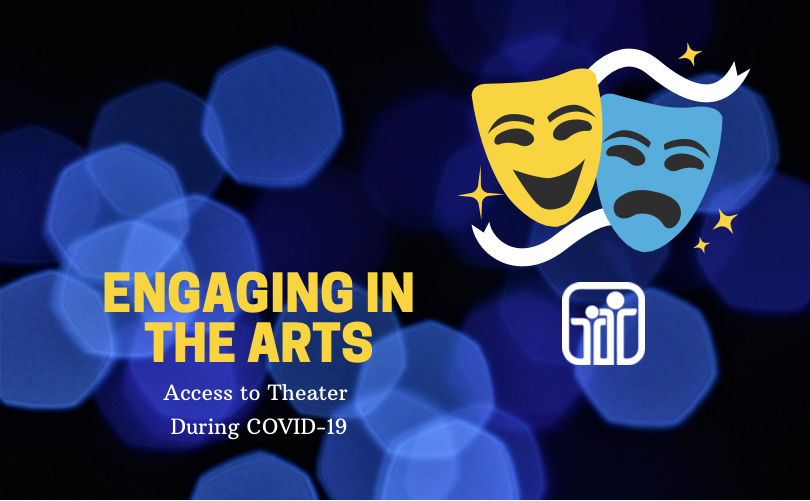Engaging in the arts has been even more important during the pandemic. As COVID-19 brought change, trauma, and isolation, theater supports participants in their emotional and social wellbeing. Participants increase communication strategies through dialogue and working in groups, as well as gain self-confidence and recognize their potential for future success.
PYD’s Access to Theater (ATT) has found unique methods to offer services virtually to help participants stay creative, improve their confidence, and join a community. “Our youth consider ATT as their family and a place where they feel fully supported,” said Deep Chinappa, ATT Artistic Director. “It’s a place where there’s no judgement and where their voices can be heard.”
While ATT focuses on theater, its benefits reach far beyond that. “Our goal really is to help the youth be able to articulate, be confident, and help them boost their self-esteem,” said Deep. With increased online learning and fewer communication opportunities during COVID-19, ATT ensures that participants still have a chance to practice their communication and feel empowered.
Current ATT classes run online, helping participants navigate through COVID-19 by providing them with a supportive environment and a creative outlet. While many participants are used to Zoom and may experience Zoom fatigue in other aspects of their lives, they feel energized after their ATT sessions.
ATT focuses on original acting and improvisation. Facilitators Maureen Finnerty and Tammy Brown develop fun themes each week, ask participants what characters they want to act as within the theme, and create a narrative based on the participants’ chosen characters. For example, when the spring session started, participants played spring ping-pong to brainstorm what comes to mind when they think of spring. Flowers, walks, frogs, and hikes were mentioned, along with trips to the museum.
Developing the museum theme, each participant stated a character role they would play at the Museum of Science. A storyline appeared of two people attending the museum and interacting with the different characters, such as ticket sellers, lighting show operators, exhibit dinosaurs, frightened skeletons, and stars and planets from the planetarium. The story ended with everyone getting a tour at the butterfly exhibit.
Other themes during ATT classes have included nature walks, baseball games, caves, the deep ocean, and space. Through these stories and other activities, ATT participants practice creativity and imagination. They articulate the thoughts and emotions of their characters as they act and physically move around. Although quarantine and social distancing isolate youth, ATT allows them to feel connected with each other while developing fun and unique stories.
“I always let the youth figure it out themselves,” said Deep. “We let them be, but everyone needs some guidance. You can be a part of the group, but you have to be appropriate, respectful, and know why you’re there. Our goal is to be creative.”
As ATT helps participants be creative, it also sets them up for future success. “The skills they learn in theater help them not just in art, but in everything,” Deep said. “Whether you have to complete high school, go to college, or get a job, building your self-esteem will help you in all these aspects.”
Consider improving your confidence and wellbeing by engaging in the arts. Apply to PYD’s Access to Theater to become a part of PYD’s community and grow your creativity. The program is open to youth with and without disabilities age 14-22.
This article was written by the BU PR Lab.

